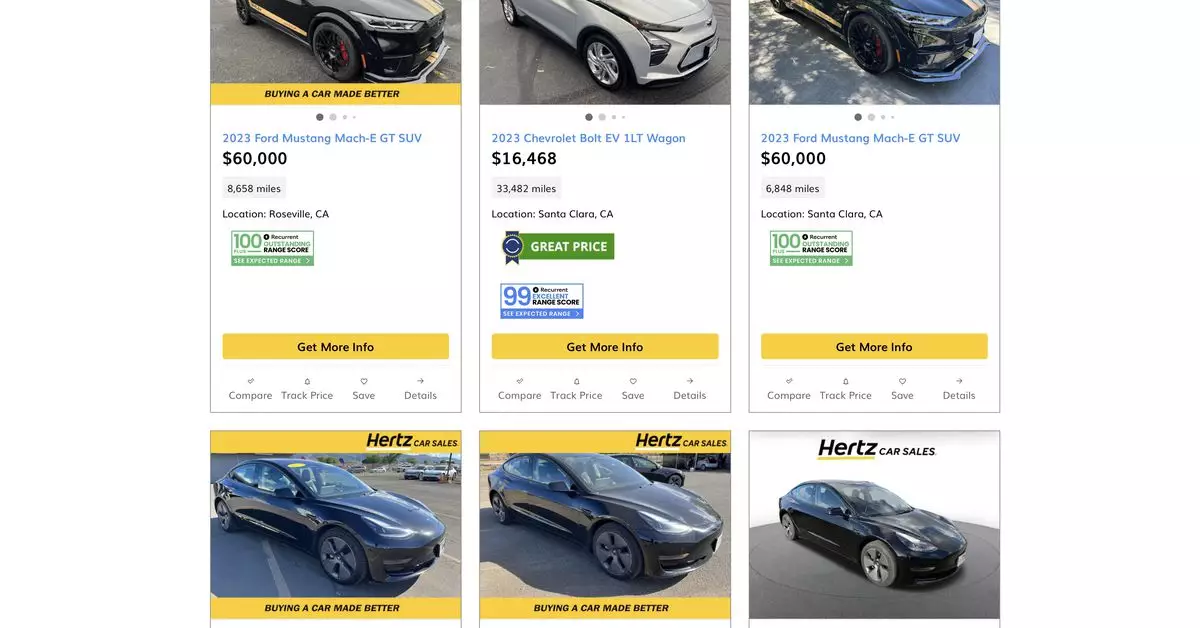The landscape of electric vehicle (EV) rental and purchase options is undeniably evolving, particularly with Hertz at the forefront of this change. Recently, the company has adopted an intriguing approach by offering renters the opportunity to buy the electric vehicles they have been renting. This tactic not only highlights the growing popularity of EVs but also caters to a niche market of consumers who may be eyeing these vehicles for longer-term ownership. Once primarily oriented towards transient rentals, Hertz is now encouraging a sense of investment in their fleet by presenting tempting purchase offers to existing renters.
Take the case of a recent Tesla Model 3 renter who reported receiving an offer of $17,913 for the vehicle, a price that is consistent with current listings on the Hertz Car Sales website. This pricing strategy is especially appealing given that the example Model 3 had approximately 30,000 miles on it, which is relatively low compared to many used vehicle listings. Additionally, Hertz has extended similar offers for vehicles like the 2023 Chevy Bolt, priced at $18,442, and even a Polestar 2, which was tagged at $28,500. Such competitive pricing coupled with limited warranties—specifically a 12-month, 12,000-mile powertrain warranty—positions Hertz well within the used EV market, creating an attractive proposition for potential buyers.
However, it’s important to scrutinize the broader context and implications of these offers. Last year, Hertz faced hurdles in its strategy to electrify its fleet, citing insufficient customer demand and challenges in maintenance, particularly with models like the Tesla Model 3. Furthermore, Hertz recently declared its decision to cease acquiring Polestar 2 vehicles, leading to a significant divestment from some of its previously ambitious electric offerings. These recent shifts suggest that the ongoing offers might not purely be about enhancing customer satisfaction but could also indicate strategic moves to liquidate parts of their fleet efficiently.
Jamie Line, communications director for Hertz, noted that this initiative seeks to enhance awareness of their vehicle sales channel while simultaneously creating unique buying opportunities for current renters. By bridging the gap between rental services and car sales, Hertz aims to cultivate a relationship with customers that extends beyond a single rental experience. This focus on consumer connection could benefit both the rental company and potential buyers who have already experienced the vehicle firsthand, thereby reducing the decision-making risks commonly associated with buying used cars.
Hertz’s strategy illustrates a significant trend in the automotive rental and sales industry, where companies are recognizing the value of offering seamless transitions from rental to ownership. As the market for electric vehicles continues to expand, Hertz’s adaptive approach highlights the shifting paradigms in consumer behavior and the automotive realm. Moving forward, it will be crucial for rental companies to remain agile and responsive to market demands while ensuring that they are not only meeting current consumer needs but also preparing for a sustainable future in electric mobility.


Leave a Reply